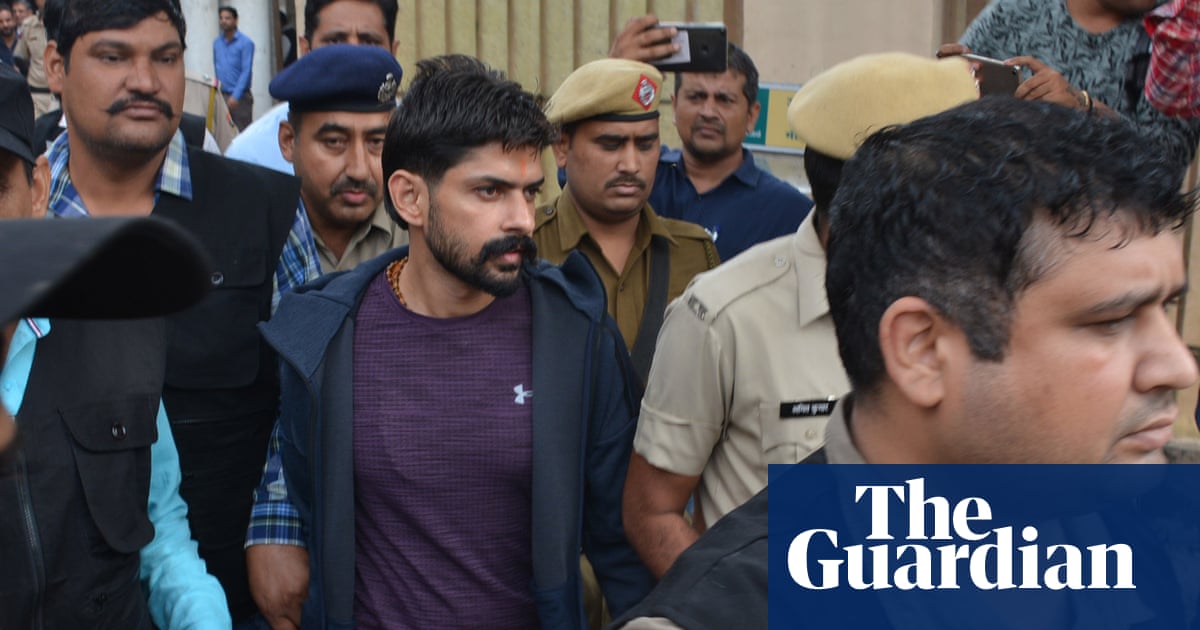
Canadian police have accused the Indian government of working with a criminal network run by one of India’s most notorious gangsters, Lawrence Bishnoi, to carry out targeted killings of dissidents in Canada.
A diplomatic row broke out between India and Canada on Monday after Canadian police accused Indian diplomats of “criminal” activities in the country, including extortion, intimidation, coercion and harassment, and involvement in targeted killings of Canadian citizens.
Canadian police said they had uncovered evidence that implicated India’s top diplomat, Sanjay Verma, in the killing of Hardeep Singh Nijjar, a Sikh activist who was gunned down outside a gurdwara in a suburb of Vancouver in June last year.
Canada’s foreign minister, Mélanie Joly, also tied five other expelled Indian officials to Nijjar’s assassination and said Canada had gathered “ample, clear and concrete evidence that identified six individuals as persons of interest in the Nijjar case”.
The US on Tuesday echoed calls for India to cooperate with Canada’s investigation.
“We have made clear that the allegations are extremely serious and they need to be taken seriously,” US state department spokesman Matthew Miller told reporters.
“And we wanted to see the government of India cooperate with Canada in its investigation.
“Obviously, they have not. They have chosen an alternate path.”
India rejected the allegations as “ludicrous” and claimed they were part of a political agenda by the Canadian prime minister, Justin Trudeau. As tensions between the two countries hit new lows, the two countries expelled each other’s top diplomats.
Among the allegations made by Canadian police is that Indian government agents had collaborated with a criminal syndicate run by India’s powerful mob boss Bishnoi to carry out assassinations. They alleged that the south Asian community, “specifically pro-Khalistani elements”, were being targeted by the Indian government.
Bishnoi has been in prison since 2014 but is accused of overseeing one of India’s largest criminal empires and has been implicated in several high-profile killings, including the shooting of a politician in Mumbai over the weekend.
“What we have seen is the use of organised crime elements,” said Brigitte Gauvin, a Canadian police assistant commissioner, at a press conference on Monday. “It’s been publicly attributed to one organised crime gang in particular. We believe the Bishnoi group is connected to the agents of the government of India.”
Bishnoi’s gang is said to have a growing presence in Canada, where there is a sizeable Indian Sikh diaspora. In September 2023, Bishnoi’s gang claimed to be behind the killing of Sukhdool Singh Gill, who allegedly had connections to Khalistani groups and was on a wanted list by the Indian government.
Gill was gunned down in the Canadian city of Winnipeg and Canadian investigators said they now believed the killing was on the instructions of Indian agents.
The accusations by Canada have fuelled mounting allegations that the Indian government, under the prime minister, Narendra Modi, has orchestrated a campaign of transnational violence against those it considers to be dissidents or threats to the state.
In a statement on Monday, Trudeau said: “India has made a monumental mistake in choosing to use their diplomats and organised crime to attack Canadians.” In response, unnamed Indian officials told local media that it was “the same old Trudeau saying the same old things for the same old reasons”.
A report in the Washington Post cited Canadian officials who claimed to have evidence that the attacks and surveillance of Sikhs in Canada had been directly authorised by Indian’s home minister, Amit Shah, who is known as Modi’s right-hand man.
The report also claimed that the evidence of high-level Indian involvement in criminal activity in Canada had been presented to India’s national security adviser, Ajit Doval, at a secret meeting over the weekend, where Doval denied any involvement in violence.
Doval reportedly rebuffed allegations that India recruited the Bishnoi gang to carry out targeted killings, but did acknowledge that Bishnoi was “capable of orchestrating violence from wherever he is incarcerated”.
Canadian officials have accused India of refusing to cooperate with their investigation and said the Indian government had refused to waive diplomatic immunity for the six individuals implicated in the alleged violence. New Delhi has maintained that Canadian officials have yet to present any credible evidence to back up their allegations.
According to reports, the US government had also been part of recent discussions with India regarding allegations of the Indian government’s involvement in transnational attacks on Canadian and US soil.
Last year, US investigators said they had foiled the attempted murder of the Sikh activist Gurpatwant Singh Pannun by an agent working for the Indian government. India said it had formed an inquiry into the incident and this week a statement by the US state department said Indian officials were due to travel to Washington DC on Tuesday to discuss the case.
Speaking on Monday night, the freshly expelled Canadian charge d’affairs in New Delhi, Stewart Wheeler, told reporters: “Canada has provided credible, irrefutable evidence of ties between agents of the government of India and the murder of a Canadian citizen on Canadian soil. Now, it is time for India to live up to what it said it would do and look into all those allegations.”
Source: theguardian.com


















